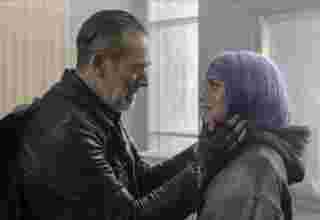On Monday’s episode of People Magazine Investigates, Willie T. Donald opens up about how a lineup gone wrong cost him 24 years of his life — and how a big-hearted professor helped him after prison

When Willie T. Donald was in his early 20s, he saw An Innocent Man, a 1989 crime thriller starring Tom Selleck about a man who was wrongly convicted because he was in the wrong place at the wrong time.
“I watched it, never thinking it could happen to me,” Donald tells PEOPLE.
Tragically, it did.
On Feb. 27, 1992, a gunman robbed and murdered a man who was on his way home with his family in Gary, Ind. That night, Donald, then 23, was looking for used cars with family members.
“I was just tagging along,” recalls the soft-spoken Donald, 53. “I wasn’t interacting with the people at the car dealership. I was in the car listening to music.”
A few days later, police officers came to Donald’s house saying they were taking him to the police station for failing to show up in court for a traffic violation.
“They placed me in a lineup,” he says. “I got picked out of the lineup and charged with the crime.”
He worried about losing his job as a shipping clerk at Goldblatt’s Department Store. He had no idea his whole life was about to take a turn for the worse.
Four months later, even though his sister and brother-in-law testified that he was at the car dealership with them, his case went to court. In 1992, Donald was wrongly convicted for murder and armed robbery and sentenced to 60 years in prison.
“It was a nightmare,” he says.
Donald’s heartbreaking story is featured on tonight’s episode of People Magazine Investigates. Titled “Alibi,” the episode airs at 9 p.m. ET on Investigation Discovery and also streams on discovery+. (An exclusive clip is shown below.)
For years, Donald tried unsuccessfully to fight his conviction.
Then, in 2006, the Medill Innocence Project at Northwestern University’s Medill School of Journalism, and later the Chicago Innocence Center, took on his case. They revealed that a gang member named Lavelle Thompson, 18, who was later murdered, had actually committed the crimes.
One of the two witnesses who testified against Donald gave a sworn statement in 2009 recanting her identification of him. When trying to identify the suspect in 1992, she had said wasn’t sure Donald was the perpetrator because Donald was bigger and taller than the man she saw.
But the detective told her Donald was the one who committed the crimes and “convinced me that I had picked the right guy,” she said.

In 2016, Donald was finally exonerated. But life was still very difficult for him.
Donald had trouble finding a job. With no money and no savings, he couldn’t buy a car or rent an apartment, so he moved in with his sister and brother-in-law.
“What happens to exonerees like me is what I call double jeopardy,” he says. “You get punished twice for something you didn’t do.”
Advocacy for Wrongfully Convicted People
Donald’s life changed for the better when he met Dr. Nicky Jackson, an associate criminal justice professor at Purdue University Northwest in Hammond, Ind., in February 2016, shortly after he was released from prison.
Jackson helped him get a part-time job and a car.
In 2020, Jackson started The Willie T. Donald Exoneration Advisory Coalition to connect Donald and others like him with the resources they need to get their lives back on track.
While the government helps prisoners who served time for crimes they committed, says Jackson, “if you come out of prison in Indiana and probably most states, because you’re innocent, they do nothing for you. Nothing.”
“And there was zero for this man,” Jackson adds. “And it was by the grace of God that he had his family. That’s all exonerees have is family.”
Jackson was upset when she learned that Donald’s father died while he was in prison. “That was one of the hardest things for him,” he says. “So he wasn’t able to comfort his mother and his sisters. He wasn’t able to go to the funeral. These are experiences and life events that you can never repay this man for. So I wanted to make some changes.”
And she did, improving Donald’s life and then teaming up with him to help other wrongfully convicted people.
Over the years, the two have formed a strong bond.
“I am grateful to Miss Jackson for all the time and effort she put into helping me,” says Donald.
“It takes a person with a big heart to do that.”
Jackson was happy to help Donald, who has become a close friend. “Our friendship is something I cherish,” she says. “I know there’s this man who truly cares about me and my family. And for that, I will forever be grateful. And I think through our friendship, there’s been a lot of great things that have happened as a result of our friendship.”
[via]






